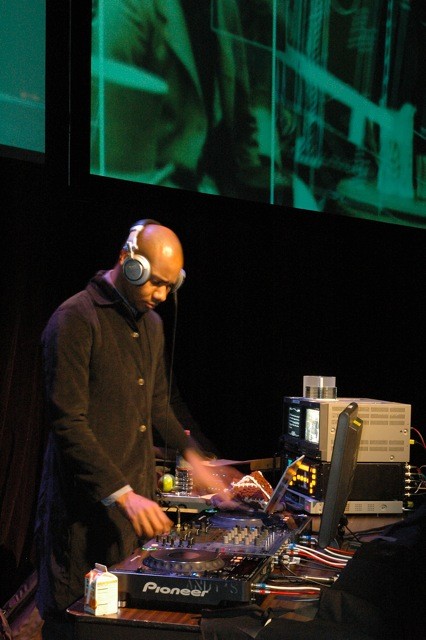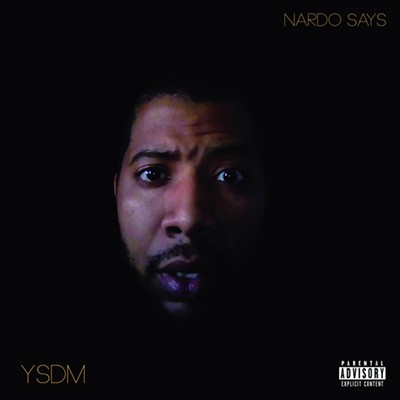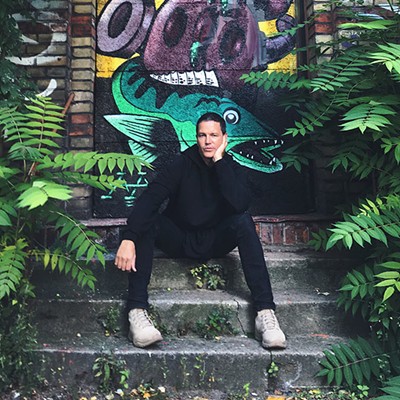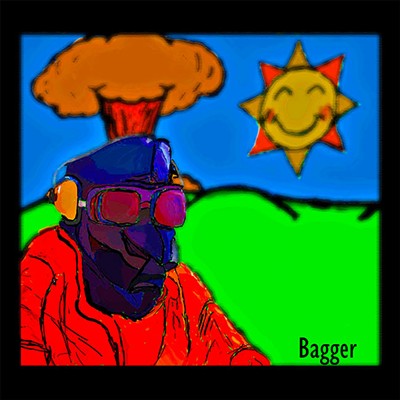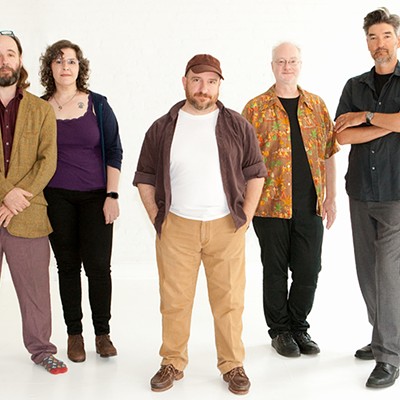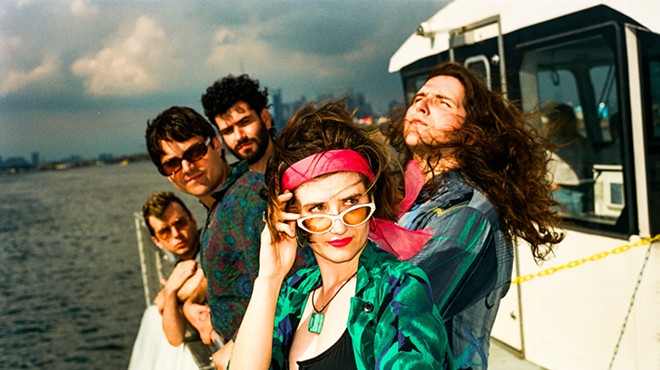Wednesday, April 11, 2012
Extended interview: DJ Spooky
This weekend, DJ Spooky performs as part of Alia Musica's Hear/Now Festival at the Kelly-Strayhorn. The musician, cultural theorist and provocateur took the time to answer a few of my questions via e-mail this week; as a supplement to my story on the festival, here's the transcript:
Your most recent book, The Book of Ice, stems from spending time in Antarctica, and explores several different aspects of the continent and its climate: Antarctica as a geographic territory that's not necessarily a political territory; Antarctica as a reification of climate change as a concept; ice as physical matter that can serve as a template for, or be converted into, music. What took you to Antarctica in the first place — did all these ideas lead you go there, or did going there lead you to thinking about it in these terms?
My Book of Ice is all about reframing the idea that the composer, the artist, the writer - all can shift the debate on how climate change is affecting everyone. There is a cultural response to climate change!
The project I'm presenting in Pittsburgh is all about Antarctica. I took a studio there and went to several of the main ice fields and wrote a group of compositions about the sound of ice. Most people have never been to Antarctica, and I think that in light of so many of the issues of climate change facing the planet, I wanted to show through music some of the situation facing us. Education is so crucial these days. In the United States, and throughout the world, there are many elections coming up. With the Republican side of things, science, culture, the arts - all of these have been swept aside in a way that only favors fear of the rest of the world, and paranoid delusions of American "exceptionalism." The problem with this kind of dialog is that it is based on ignorance. It is always easy to fool people who cannot compare contexts or explore different viewpoints. As a student, I guess I was always searching for new ways to create art and literature. I had no plan on being a musician. My art and writing were my main focus, and music was kind of a hobby that went out of control.
There have been examples before of composers using mathematical formulae or models based on the solar system as the basis for composition; was using ice and its structures as a jumping-off point for music or sound art something that had a precedent, or something you started exploring of your own volition?
Yes, I studied classical music with Elliot Schwartz, a well known composer. But in general, my knowledge base came from my compositions. It's all about collage, but I'm influenced by Nam Jun Paik, Wagner, and Grand Master Flash just as easily as I am by Adam Smith, John Cage, or Duke Ellington. There are a couple of composers who have worked around the theme of Antarctica or ice - John Luther Adams and Ralph Vaugh Williams for example, or other older composers like Handel or Mahler who wrote pieces about water, or the earth. I listen to a lot of different styles.
You took part last year in a long-running project, The Voice Project, that seeks to bring attention to the plight of folks in Uganda who have lived through the ongoing conflict there. What was your take when, last month, Invisible Children released the Kony 2012 video that went viral and became a lightning rod? Why did that particular approach garner mass attention for the cause so suddenly, and was it the right approach?
Composers are always reflections of their times. Most of my favorite composers were people that didn't accept the rules that they were living in. I like to think of my music in the same tradition. It's a kind of anti-tradition, but there is enough continuity that you realize that these are people who said "yes" to new forms of thinking. Most people say "no." Antarctica doesn't care if you say no or yes. You just have to be careful to not fall in the water - you would die in about about 2 minutes from hypothermia. The Voice Project was with Joshua Roman, who is a really talented cellist, and I think that the KONY controversy did one good thing: it raised awareness about the situation. Provocation is always a catalyst. Let's push more ...
I know you've performed in town before at places like the Warhol museum and Carnegie Mellon; do you have any other Pittsburgh connections?
Pittsburgh is a really interesting place because of so many of the paradoxes of the 20th century have a found a home there. Think of post-industrial places as the beginning of digital culture. Detroit made techno, Pittsburgh made one of the most digital artists of all - Andy Warhol, who probably would never have used a computer. Urban landscapes speak volumes - there is really nothing "original." I'm just honest about it. Everything is a permutation of a permutation. With my Antarctica project the sound responds to landscape, that's the paradox: the grid of the American city's landscape hits the open expanses of Antarctica. You gotta see that as something pretty unique.


